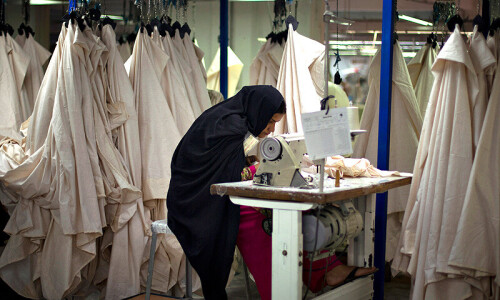
The census reveals that the wholesale and retail trade sector leads with 2.9 million establishments, followed by manufacturing (696,558), education (326,868), and human health and social work (123,973). These sectors underscore the diverse range of economic activities across Pakistan.
Household-based economic activities are another key pillar of Pakistan’s informal economy. With 10.9 million units engaged in various livelihoods, the informal sector is a major contributor to income diversification and employment. Animal farming leads this segment with 5.6 million units, followed by sectors such as tailoring, embroidery, carpet weaving, small-scale poultry, and tuition centres. These enterprises not only provide critical sources of income but also contribute to women’s empowerment and rural employment.
The PBS has successfully concluded the 2023 Economic Census, a significant milestone integrated with the 7th Population & Housing Census 2023, Pakistan’s first-ever digital census. This integration, which saved Rs7bn in costs and reduced duplication of efforts, provides a consolidated baseline for future socio-economic planning and development.
Economic Census reveals enterprises with fewer than 10 workers account for 95pc of businesses
The census mapped a total of 7m economic establishments across Pakistan, categorising them into 99 industrial sectors under the Pakistan Standard Industrial Classification (PSIC). Dr Naeem uz Zafar, Chief Statistician at the PBS, emphasised the strategic value of the Statistical Business Register (SBR), providing policymakers with integrated data for targeted interventions.
The results also show that 28.5pc of households are involved in home-based economic activities, further highlighting the informal sector’s essential role in fostering entrepreneurship, enhancing women’s empowerment, and boosting rural employment.
Dr Zafar stressed that the initiative lays the foundation for Pakistan’s first-ever SBR, which will serve as a critical tool for SME development, enterprise surveys, labour market analysis, and digital economy expansion.
He called for greater policy focus on the informal sector, alongside the traditional large-scale industries, to facilitate broader economic transformation.
Planning Minister Ahsan Iqbal commended the census data, noting that it provides a solid foundation for interventions aimed at inclusive growth and poverty reduction.
Sarwar Gondal, focal person for the Digital Census at PBS, hailed the integration of economic data with the 7th Population & Housing Census as a groundbreaking initiative. Despite the challenging timeline, the PBS team, supported by over 121,000 trained enumerators, successfully implemented IT-based solutions, resulting in a comprehensive economic database that will aid future policy and development efforts.